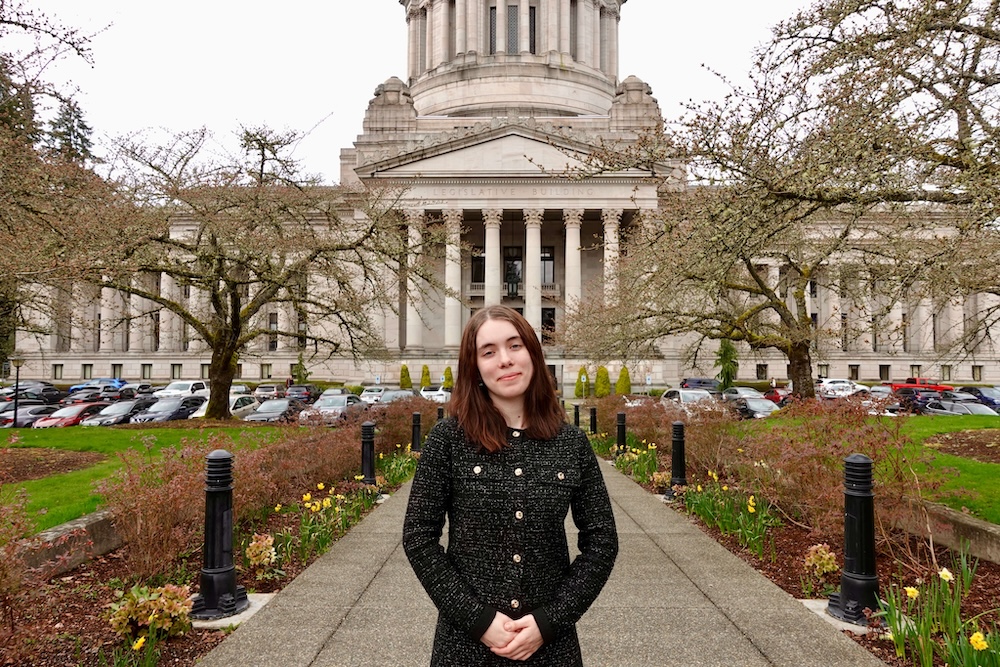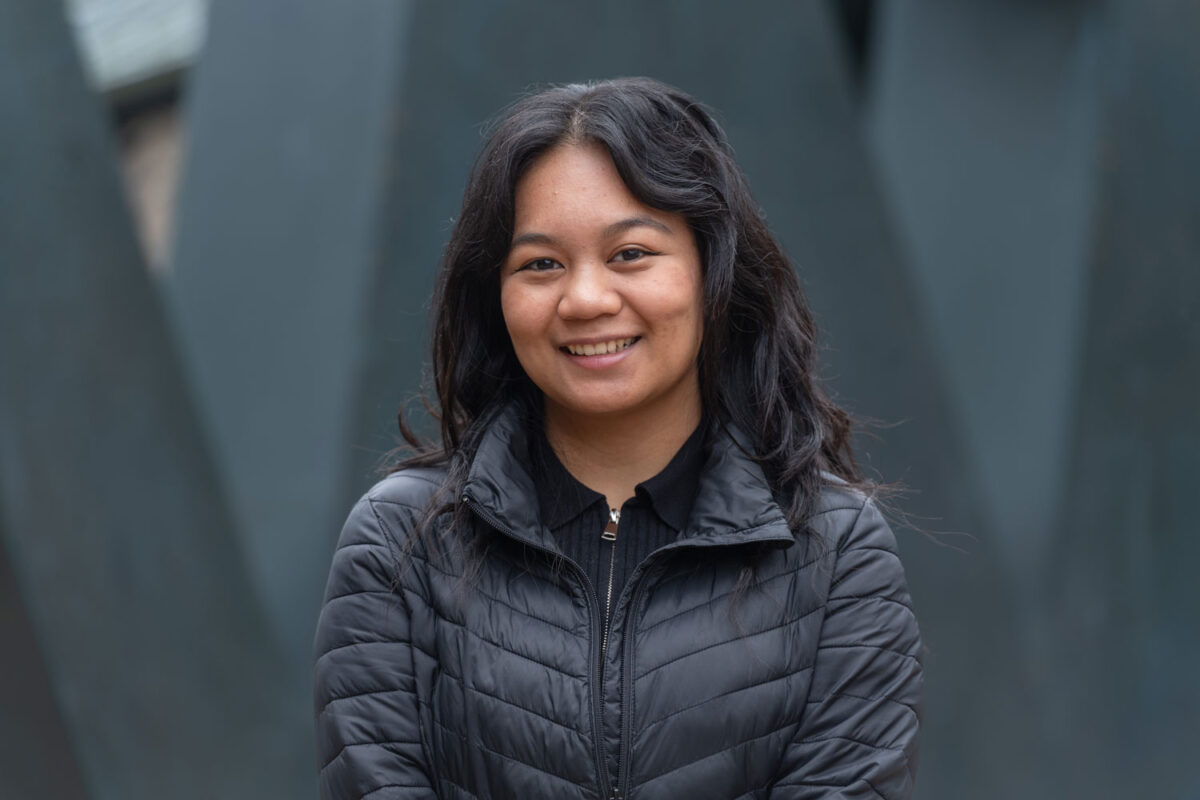
UW Bothell introduces Native American students to college
By Douglas Esser
Of the many University of Washington Bothell students from ethnically and racially diverse backgrounds, some learned about the university from recruiting events such as Friday’s RAIN at Mobius Hall.
Reaching American Indian Nations is a daylong program of workshops for prospective tribal students. The high school students interact with UW Bothell and Cascadia College students, alumni, staff and faculty.
This is the fourth year for RAIN, which is coordinated by Rachael Meares, the admissions adviser, recruiter and Native American outreach coordinator who started it in 2013 when she was still a student.
Since then it has grown to more than 100 students from 50 groups. Many travel from distant parts of the state to take part. Although there are 29 tribes in Washington, not all the members live on reservations. In fact, the majority of high school student who identify as Native American are coming from Seattle and Tacoma, Meares said.
“Students see that that their cultures are affirmed here,” Meares said.
The keynote speech was delivered by Warren Buck, Ph.D., physics professor and chancellor emeritus who has Choctaw heritage through his mother.
Shawn Peterson is a former UW Bothell student who helped Meares organize the first RAIN event. Now a program coordinator with Na’ah Illahee Fund, a center for urban Native youth in Seattle, she attended Friday’s gathering because “It’s important to be in the space.”
She traces her heritage to the Nuu-cha-nulth First Nations on Vancouver Island and attended the Northwest Indian College at Bellingham before graduating in 2013 from UW Bothell with a degree in Community Psychology. “Coming here changed my life because I’m able to do my job working with youth and getting them on the path to higher education, because it opens doors,” Peterson said.
Laura Wong-Whitebear, the Indian education program specialist for the Edmonds School District, brought 16 middle and high school students.
“I’m hoping they’ll learn if they want to go to school but never thought it possible, they’ll find out there’s a lot of assistance and support to help them fulfill their dreams,” she said.
Santana Shopbell attended the 2014 RAIN event as a student at Tulalip Heritage High School. Now working as a youth activities specialist for the tribe, she returned with seven high school students. She says it’s an eye opener for them to “realize what you have and what’s open to you.”
UW Bothell currently has 91 undergraduate and graduate students who identify as Native Americans or Alaska Natives.
“I think UW Bothell is attractive to students because of its size,” Meares said.
Students who want American Indian Studies classes have that option in Seattle through tri-campus enrollment, Meares said.
Native American students who choose Bothell often are interested in the same thing as other students — building careers in fields such as information technology or nursing, she said.
They can still engage with tribes through undergraduate research projects, she said.
“The opportunities for undergraduate research are vast,” Meares said. “I feel they do have that opportunity to take what they’re passionate about and make it their own.”
Additional support comes from the First Year and Pre-Major Program, formerly known as CUSP.
“Students feel very supported in finding the right classes and getting into their major,” Meares said. The biggest supporters are right in the classroom.
“Just let your faculty know what you’re passionate about,” Meares said. “I feel the faculty were my biggest mentors and cheerleaders.”
Other similar recruiting events at UW Bothell are PIPE (Pacific Islanders Pursuing Education) on Feb. 26, BOLD (Black Opportunity & Leadership Day) on March 4, and DALE (Dia de Avanzando Latinos en Educacion) on March 18. The events include College Awareness Day on May 6.



